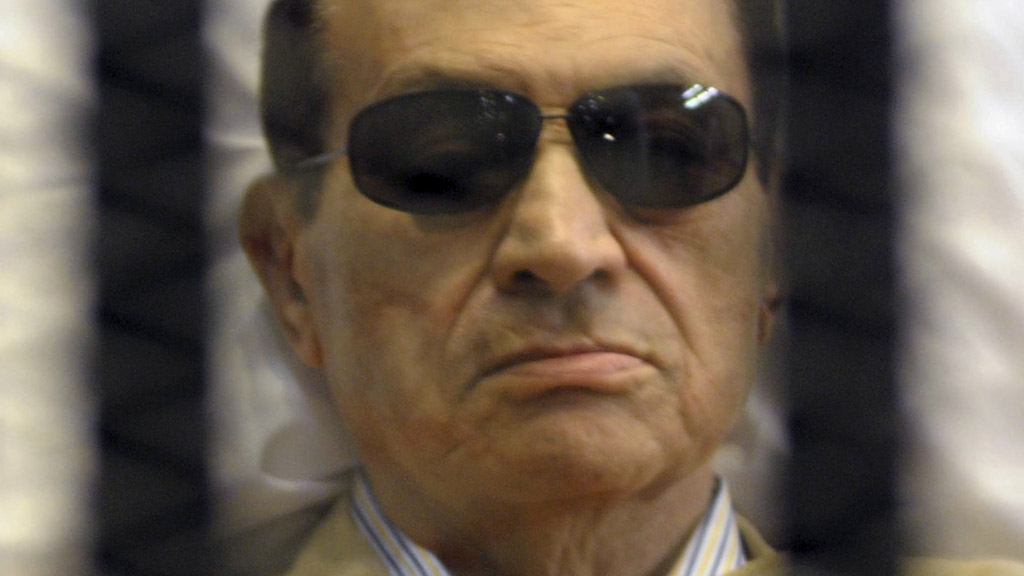Mubarak allowed retrial after appeal to Egypt court
Egypt’s ousted former president Hosni Mubarak successfully appeals against a life sentence, allowing him to be retried over the killing of protesters in the 2011 uprising.

Egypt’s appeals court accepted an appeal by Mubarak and former interior minister Habit el-Adly on Sunday against sentences given following a trial in the aftermath of the Arab spring uprising, which saw Mubarak’s 30-year long rule end after he was toppled in a wave of mass protests.
The pair were sentenced to life in prison in June 2012 in a court ruling that saw them responsible for the deaths of protesters killed by security forces trying to quell the uprising.
“The court has ruled to accept the appeal filed by the defendants … and orders a retrial,” Judge Ahmed Ali Abdel Rahman said.
Mubarak will not walk free, as he is being held for investigation on other charges. The defendants were not present in the courtroom.
Judge Abdel-Rahman has also granted the prosecution’s request to overturn not-guilty verdicts on Mubarak, his two sons and an associate of the former president, Hussein Salem, on corruption charges. Salem was tried in absentia and remains at large to this day.
The 84-year-old ex-president, currently in a military hospital, was reported last year to have been close to death, but the current state of his health is unknown.
Mubarak’s defence lawyers had argued that the former president did not know of the killings, but an Egyptian fact-finding mission has revealed that he watched the uprising against him unfold through a live TV feed at his palace.
Opportunities and dangers
The mission’s report could hold both political opportunities and dangers for Mubarak’s successor, Mohammed Morsi of the Muslim Brotherhood.
While a new Mubarak trial would be popular with Egyptians who believed he should have been convicted for the more serious charge of ordering the crackdown, the report also implicates the military and security officials in the protesters’ deaths some of whom currently serve in Mr Morsi’s government.
The judge also ordered the retrial of six of el-Adly’s top aides who were acquitted in the same trial. Five of them were found not guilty of involvement in the killing of the protesters, while one was acquitted of “gross negligence”.
No date has been set for the start of the retrial of the 11 and it was not immediately clear if all of them would be brought before the same court as was the case in their first trial.
The ruling came one day after a prosecutor placed a new detention order on Mubarak over gifts worth millions of Egyptian pounds he and other regime officials allegedly received from Egypt’s top newspaper, Al-Ahram, as a show of loyalty while he was in power.
The public funds prosecutor ordered Mubarak to be held for 15 days pending the completion of the investigation. Mubarak, 84, was moved to a Cairo military hospital last month after slipping inside a prison bathroom and injuring himself.
-
Latest news
-
‘Authentic Stupidity’: Ben Elton’s new show explores how idiotic human beings can be5m

-
Is Israel’s evacuation of Rafah the precursor to full scale invasion?3m

-
Eurovision: Non-binary artist wins for first time2m

-
Tens of thousands march in Georgian capital against ‘foreign agents’ bill2m

-
‘Russia’s number one goal is to get troops closer to Kharkiv,’ says Ukrainian security analyst4m

-




